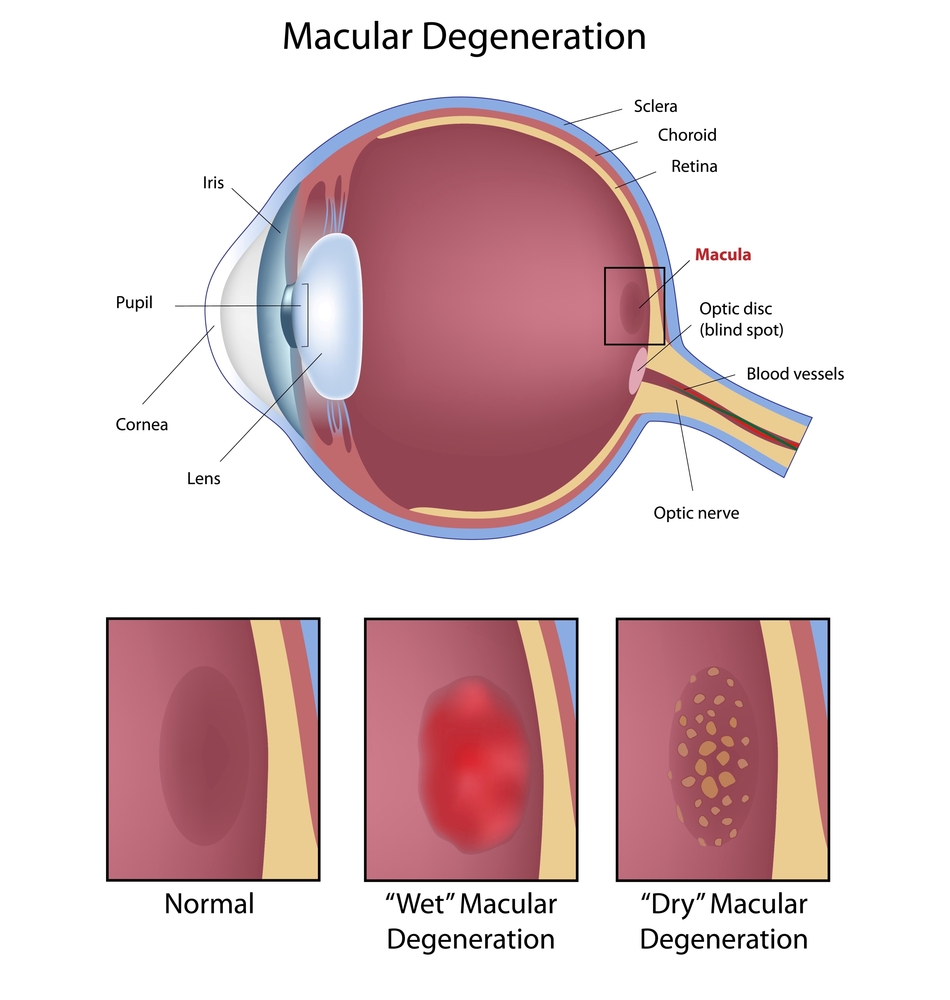 Macular degeneration is a common condition which causes a loss of visual accuity. In fact, it is the most common cause of vision loss. Around 10 million Americans are suffering from macular degeneration – more than are suffering from glaucoma and cataracts combined.
Macular degeneration is a common condition which causes a loss of visual accuity. In fact, it is the most common cause of vision loss. Around 10 million Americans are suffering from macular degeneration – more than are suffering from glaucoma and cataracts combined.
Currently, the condition is considered to be incurable. It is a condition which is caused by the deterioration of the retina – the part of the eye that processes what we see, and sends information to the optic nerve, from the eye, to the brain. The macula is the part that focuses central vision, and it is what controls our ability to see in the kind of fine detail that is required to read, drive, recognize faces, and perform other focus-requiring tasks.
When the macula is functioning well, it is able to process highly detailed images. When it starts to deteriorate, it will produce wavy or blurry images,and some people find that their central vision is completely lost in advanced stages of the condition – to the point that they are considered to be legally blind. It’s interesting to note that while people with macular degeneration do not have central vision, they can still see using their peripheral vision – although they are not able to see as clearly, because of the way that peripheral vision works.
There are two main kinds of macular degeneration – one type is wet, and the other is dry. The wet variety is less common than dry degeneration.
Usually, macular degeneration is age-related, but there is a condition called Stargardt disease, which can affect young people and is passed on through a recessive gene.
There are three stages which people go through with age-related macular degeneration. When the condition is just starting to develop there are no real symptoms, but as it progresses, there will be noticeable vision loss.
The people who are at most risk from macular degeneration are those who are over the age of fifty five, although there is an element of heredity to it as well. Those who have a family history of age related macular degeneration are at a much greater risk of suffering from it themselves.
Smokers are twice as likely to suffer from the condition as non-smokers, and caucasians are at a greater risk of developing the condition than Latinos, African Americans and Hispanics.
At the moment, the condition is considered to be incurable, so those who are diagnosed with it can only manage the condition through coping mechanisms that will help them to get around and complete day to day tasks with what is left of their peripheral vision. There is a lot of research being done into the condition to try to understand what causes it, how the progression can be slowed, and whether it could be reversed, however it is unlikely that there will be any breakthrough that would help those who are suffering from the condition today. That is why support and diagnosis is so important at an early stage, to prevent accidents caused by their loss of sight.

